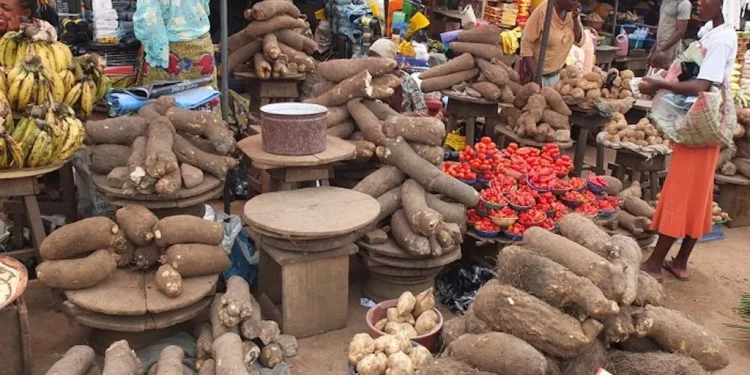The World Bank has ranked Nigeria among the top ten countries most severely affected by food inflation, placing it fifth worldwide and third in Africa, behind Malawi and Liberia. This stark revelation comes from the bank’s September food security report, which underscores Nigeria’s escalating food crisis amid conflicts and environmental challenges, particularly those linked to climate change.
Haiti leads the global food inflation crisis, with an alarming 12% year-on-year increase in food prices, followed by Malawi, Vietnam, and Liberia. The report also notes that 18 countries, including Nigeria, are experiencing deteriorating food security conditions due to intensified conflict and climate-related shocks, resulting in more than one million additional people facing high levels of food insecurity compared to the previous year.
The report highlights a troubling 28% increase in the number of food-insecure individuals in Nigeria between August 2023 and September 2024. This surge is largely driven by extreme weather events that have wreaked havoc across West Africa, forcing several nations in the region to declare states of emergency. The latest Cadre Harmonisé analysis indicated that nearly 55 million people in West Africa are facing food insecurity (IPC Phase 3 or higher) during the critical lean season from June to August 2024.
Key contributors to this crisis include deteriorating security conditions in agricultural regions, a decline in agricultural productivity, soaring food prices, disrupted markets, and the increasing frequency and severity of extreme weather events. The report also revealed that about 1.6 million hectares of land in Nigeria have been flooded, impacting 342,650 hectares of cropland and putting 685,770 vulnerable individuals at greater risk.
This food crisis poses not only a significant threat to the livelihoods of millions but also underscores the urgent need for targeted interventions and strategies to address food insecurity in Nigeria and across West Africa. As the situation worsens, stakeholders—ranging from government officials to small and medium-sized enterprises (SMEs)—must collaborate to develop sustainable solutions to improve food production, enhance market access, and bolster resilience against climate impacts.
Investing in agricultural innovation, providing support to farmers, and improving infrastructure could be pivotal in reversing the trend of food insecurity. The need for immediate action is critical to ensure the well-being of millions of Nigerians who rely on stable food supplies for their survival and economic stability.
Addressing these challenges is vital for securing not only the future of food security in Nigeria but also the broader economic stability of the West African region.










